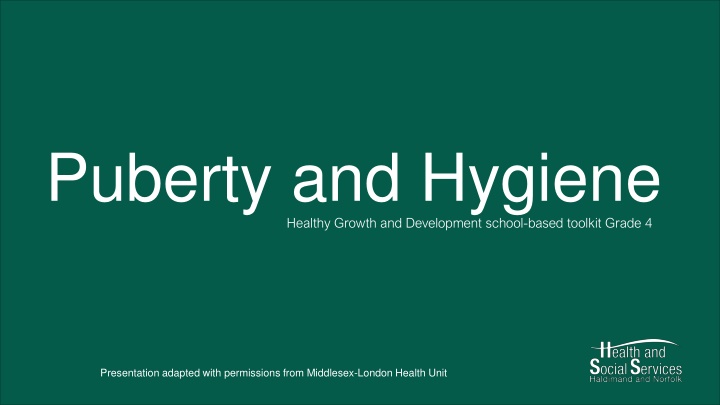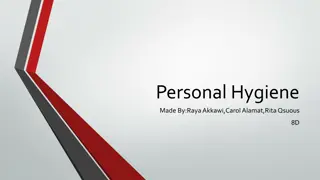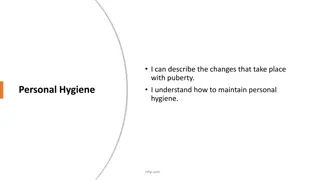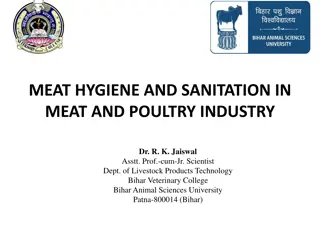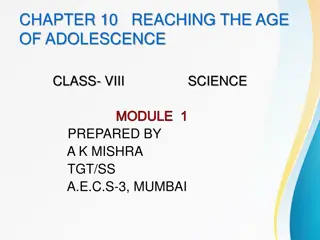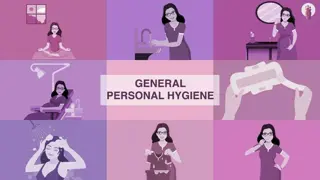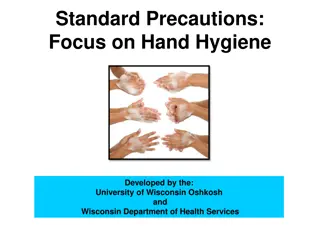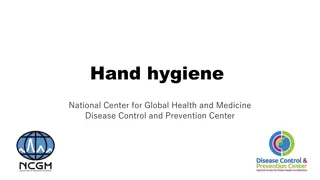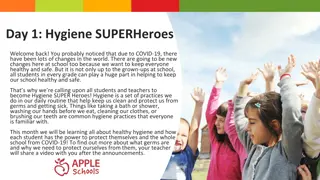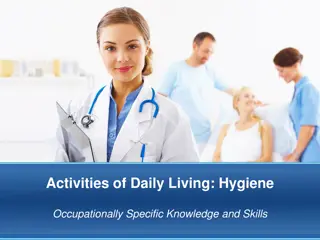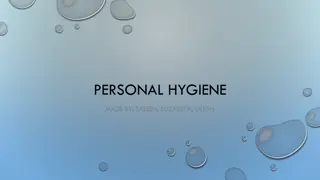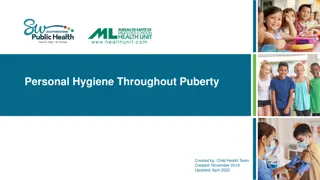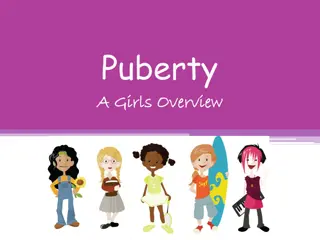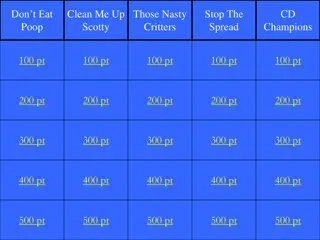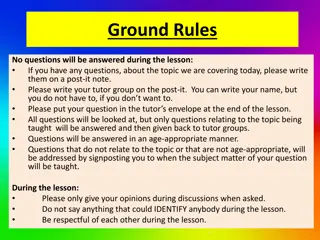Puberty and Hygiene
This adapted presentation covers important topics such as the onset of puberty, physical and emotional changes, hygiene practices during puberty, and commonly used hygiene products. It encourages open discussion and provides guidelines for respectful conversation about sexual health. The content aims to educate Grade 4 students on healthy growth and development as they transition from childhood to adulthood.
Download Presentation

Please find below an Image/Link to download the presentation.
The content on the website is provided AS IS for your information and personal use only. It may not be sold, licensed, or shared on other websites without obtaining consent from the author.If you encounter any issues during the download, it is possible that the publisher has removed the file from their server.
You are allowed to download the files provided on this website for personal or commercial use, subject to the condition that they are used lawfully. All files are the property of their respective owners.
The content on the website is provided AS IS for your information and personal use only. It may not be sold, licensed, or shared on other websites without obtaining consent from the author.
E N D
Presentation Transcript
Puberty and Hygiene Healthy Growth and Development school-based toolkit Grade 4 Presentation adapted with permissions from Middlesex-London Health Unit
Class Guidelines Giggling is okay Be respectful Everyone is learning, ask questions! Discuss sexual health topics responsibly outside the classroom
What is Puberty? Time of change from child to adult Physical changes Emotional changes
When does puberty start and why? Puberty begins when youth are between 8-15 years old The brain sends a signal to the reproductive organs to produce hormones These hormones cause physical and emotional changes
Person with a vulva Person with a penis
Hygiene and Puberty Physical changes during puberty may change what we need to do to keep ourselves clean
Let's Let's talk about these items and how they relate to the changes experienced in puberty! Talk
Soap/Body Wash You may want to shower or bathe more often once puberty begins. During puberty: Skin becomes oilier, can cause acne Body sweats more Body odour
Deodorant/Antiperspirant Some people start to use deodorant/antiperspirant when puberty begins, it is applied to underarms in the morning or after showering. Deodorant helps control odour Antiperspirant reduces sweat Combination products available
Laundry Underwear, socks and shirts cover the sweatiest parts. You may need to wash your clothes more often when puberty begins. Make sure they re fresh every day! Sweat and oil stick to clothes Bacteria cause clothes to smell when not washed regularly
Toothbrush and Dental Floss Brush your teeth for 2 minutes 2 times a day. Prevent cavities Get rid of bacteria that causes bad breath Use a pea-sized amount of toothpaste
Menstrual Products What is menstruation (a period)? A person who has a vulva and a uterus will begin to get a period Blood and tissue leave the body through the vagina Happens about every month Lasts approximately 2-7 days
Menstrual Products Used to catch blood and discharge keeping underwear clean All menstrual products need to be changed every couple hours to prevent infections Pantyliners/Menstrual pads Tampons Menstrual cups Menstrual underwear
Handwashing The most important thing we can do to prevent the spread of germs When should we wash our hands? After using the washroom Before eating or preparing food After sneezing or coughing
Handwashing How do we wash properly? Did you know it takes about 20 seconds to sing the ABC song? Turn on tap Lather with soap for 20 seconds Rinse with running water Dry with clean/paper towel or hand dryer
Where can you get more information? Parents or other family members Other trusted adults (teachers) Health professionals
